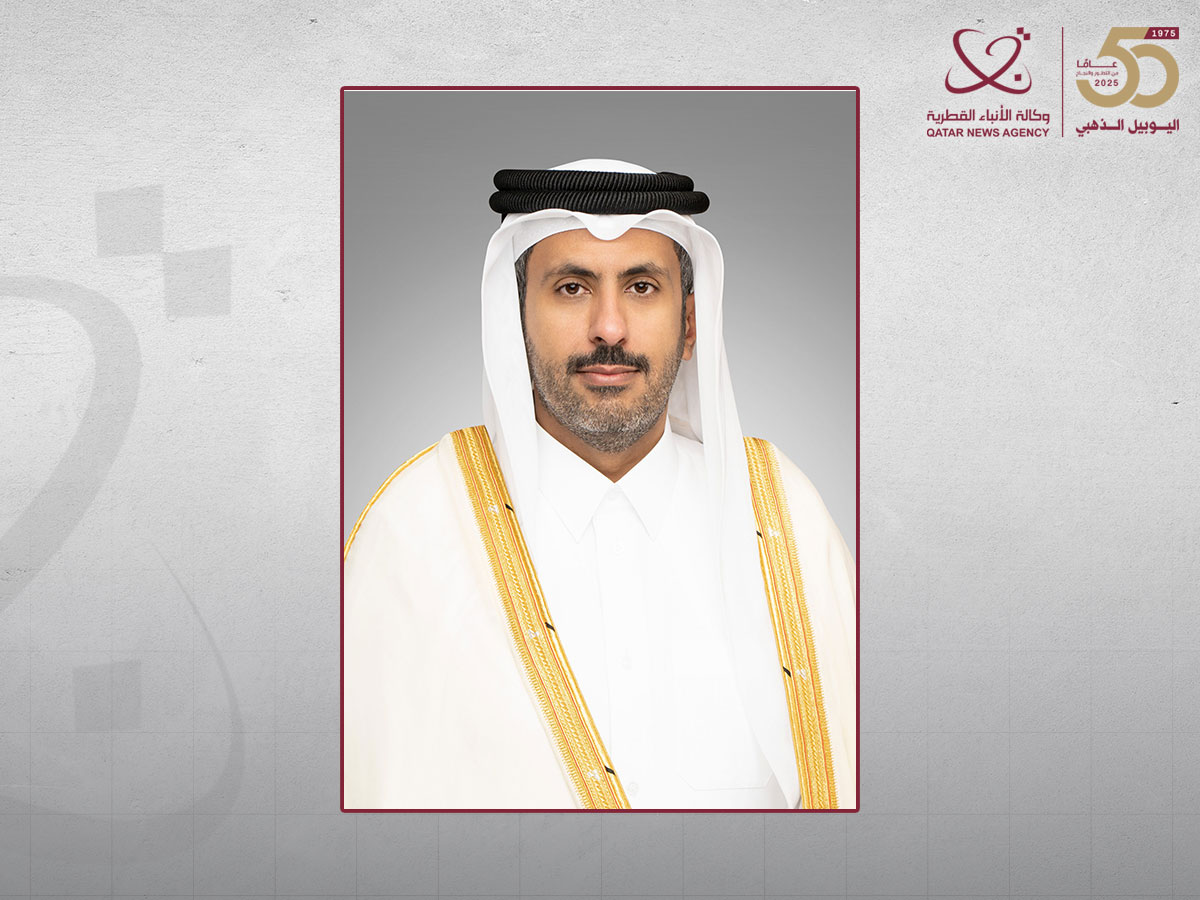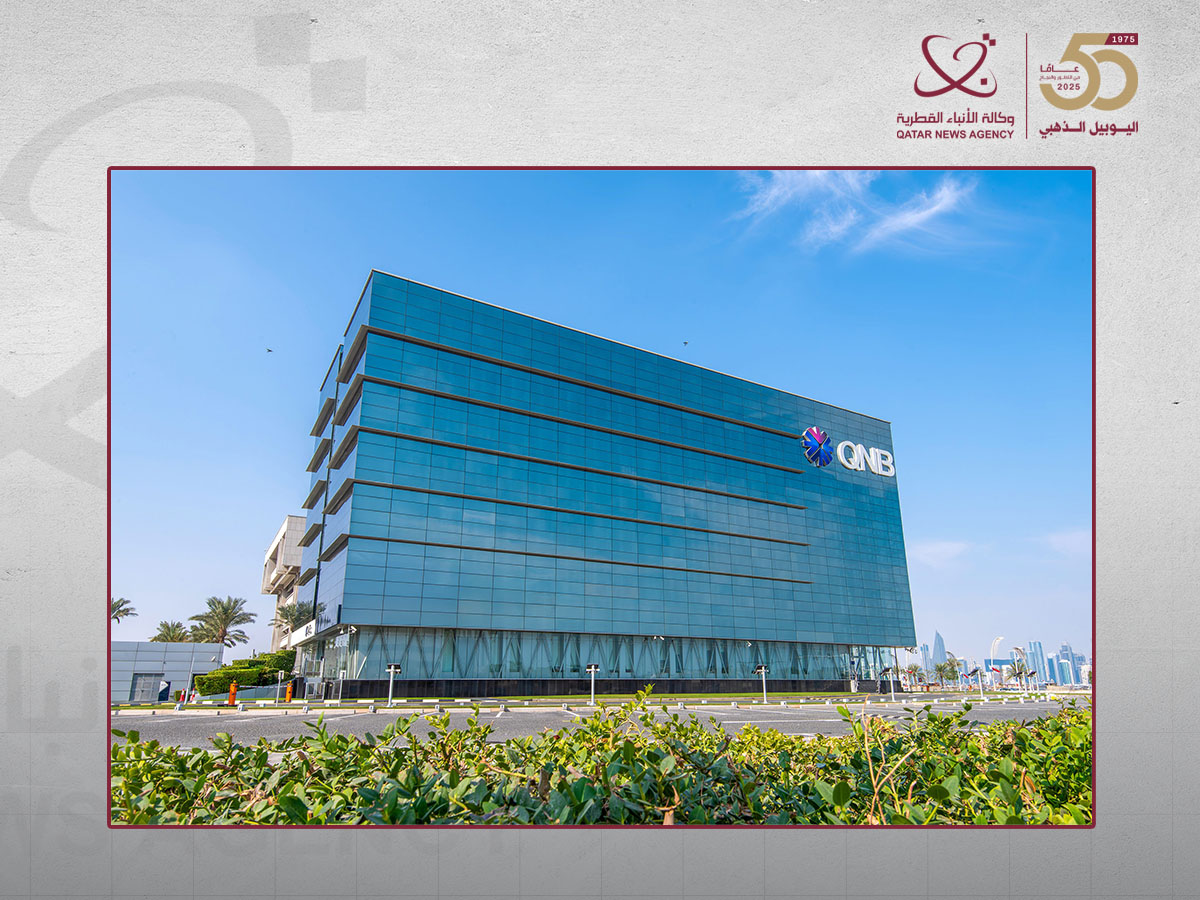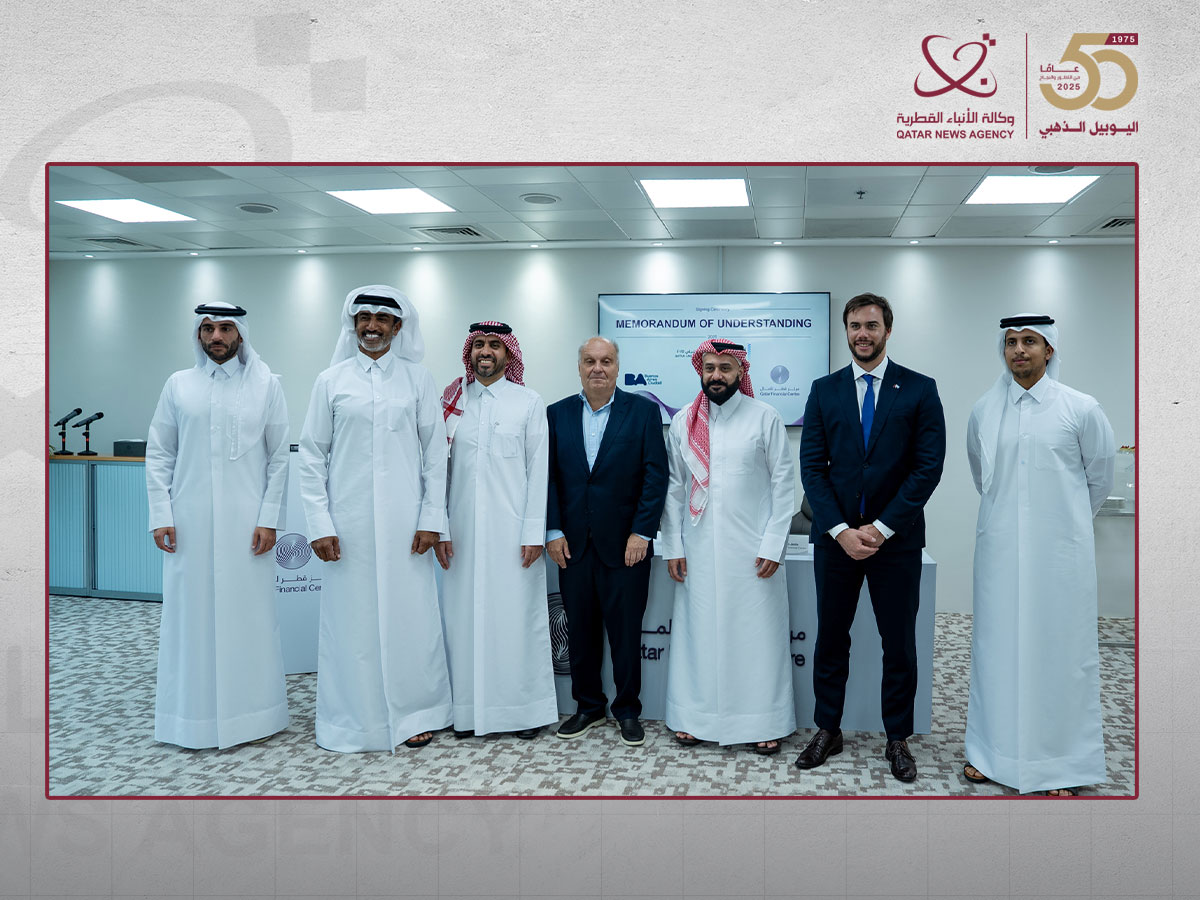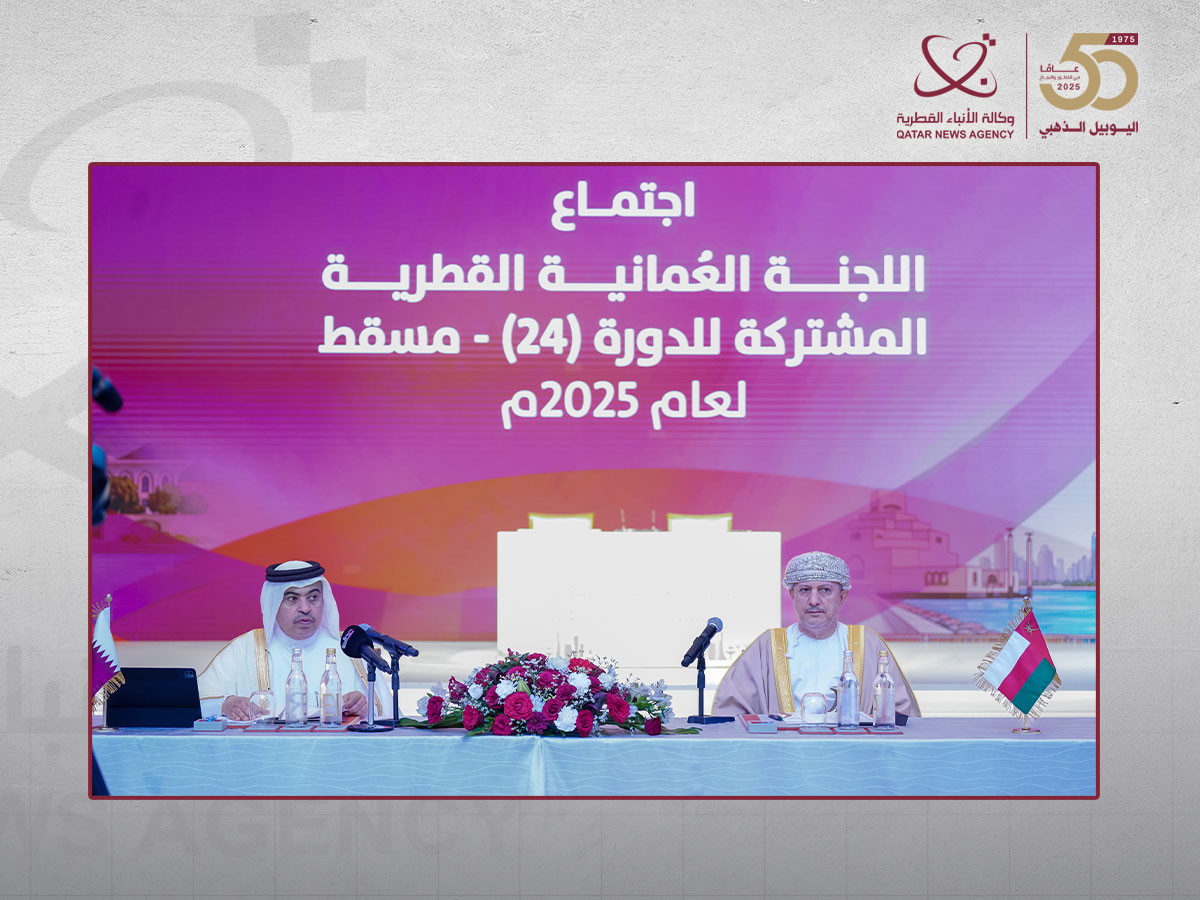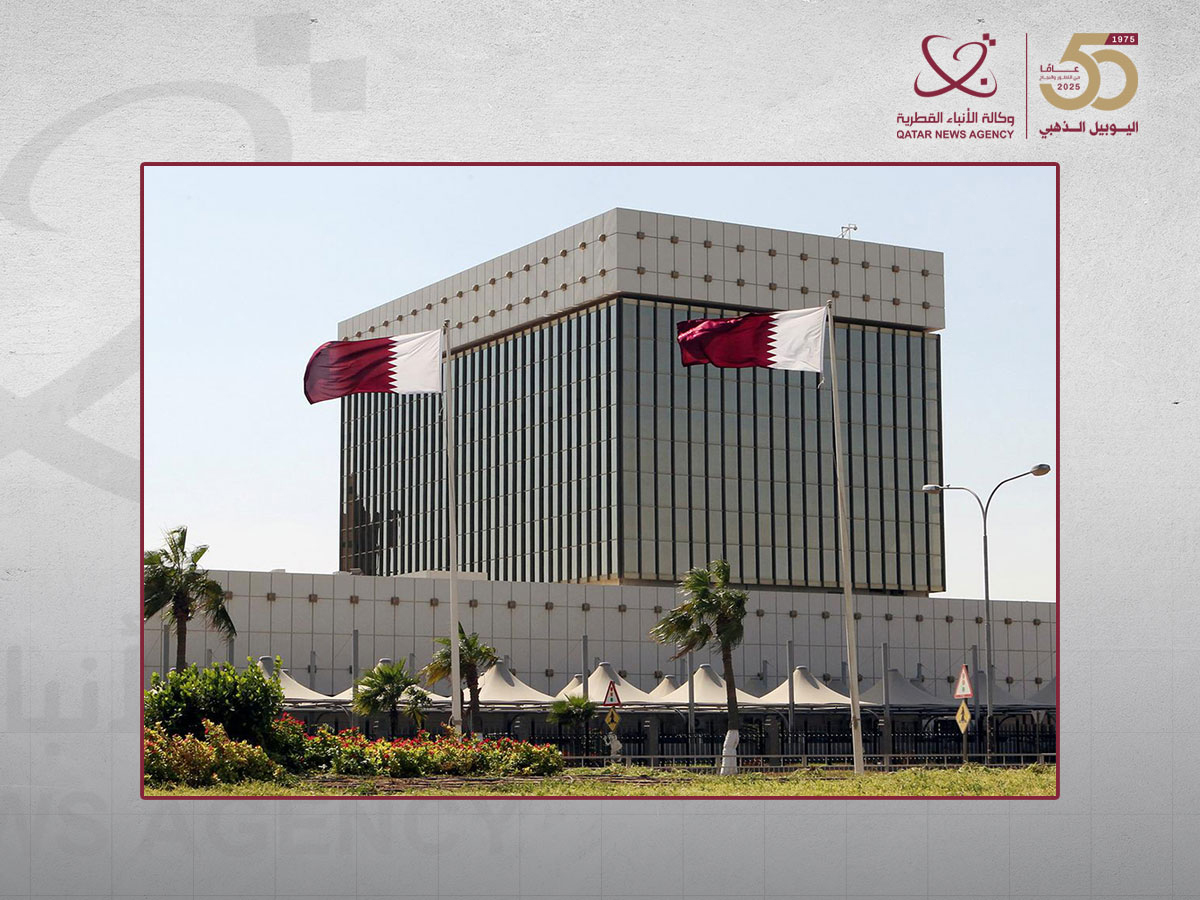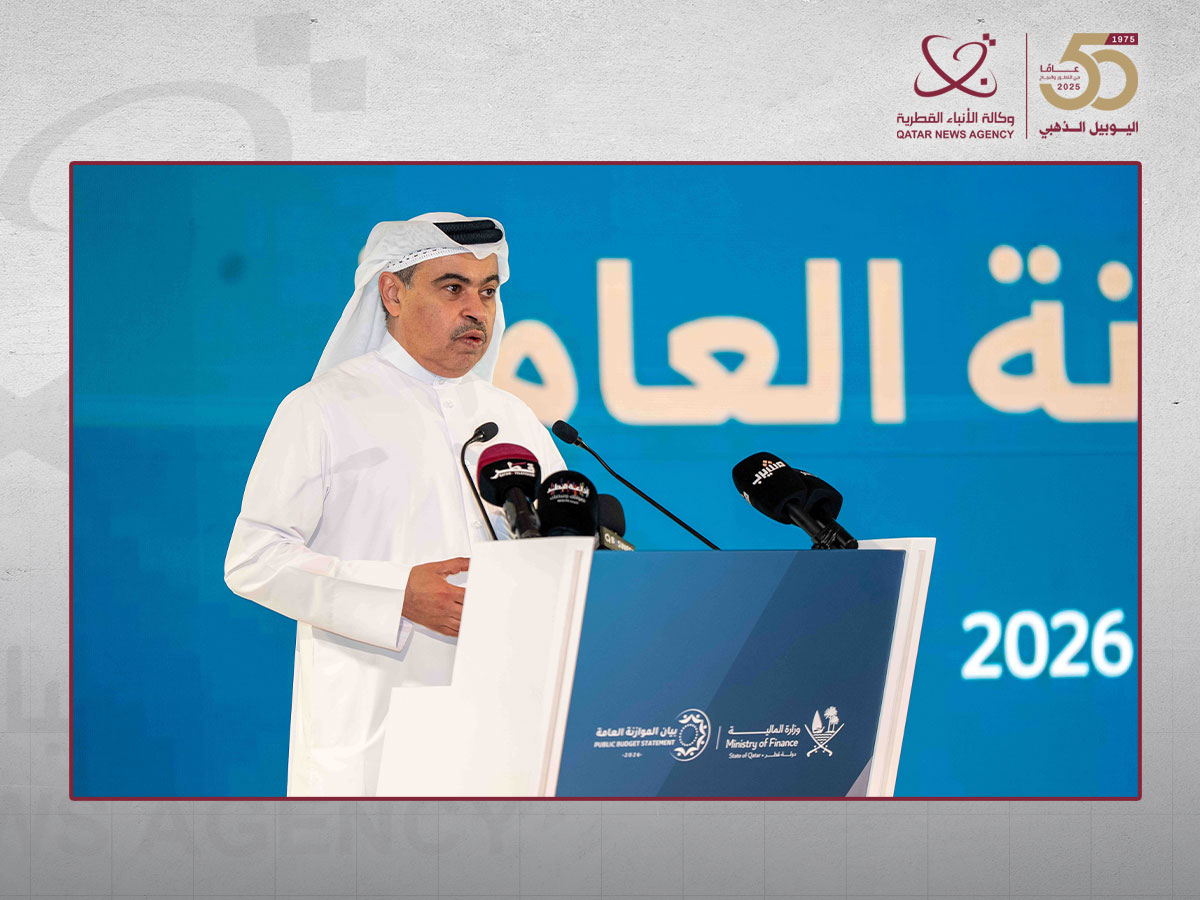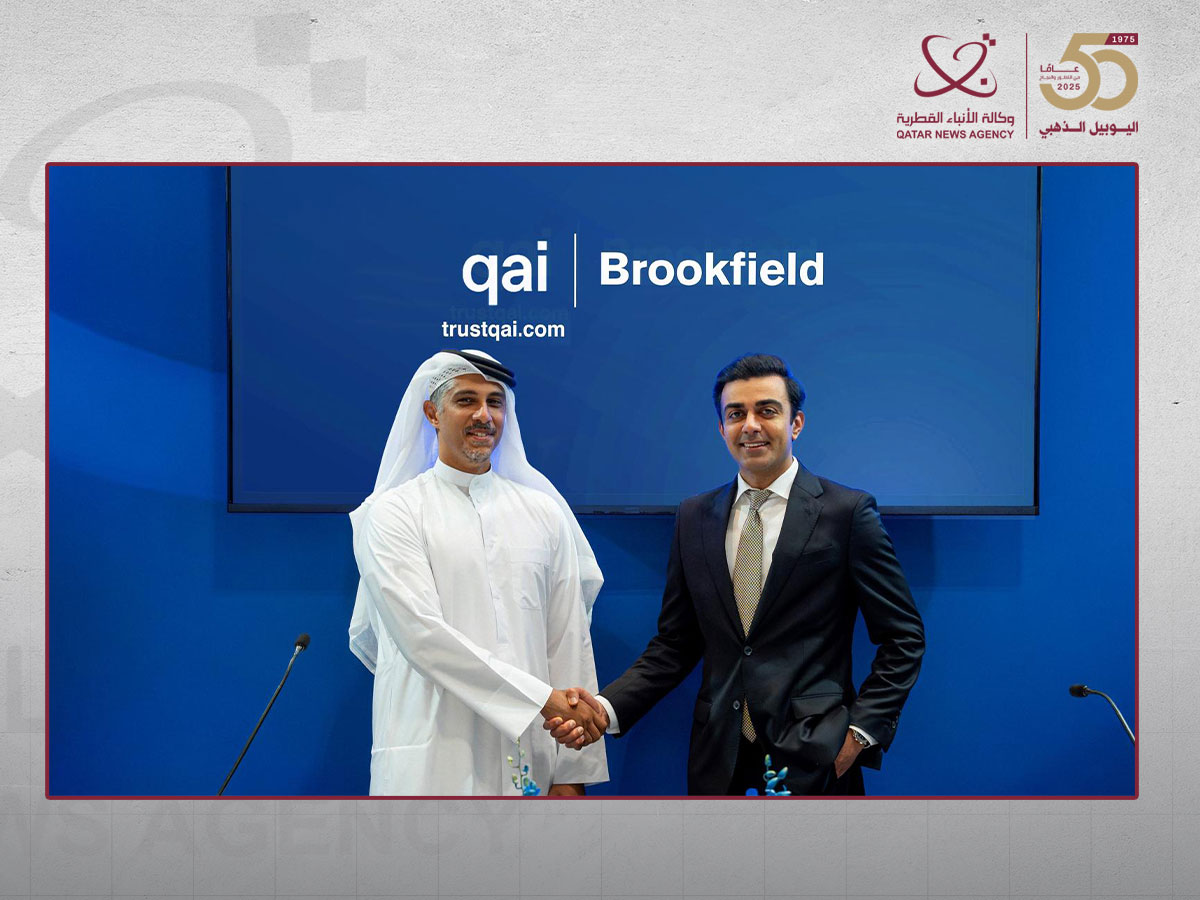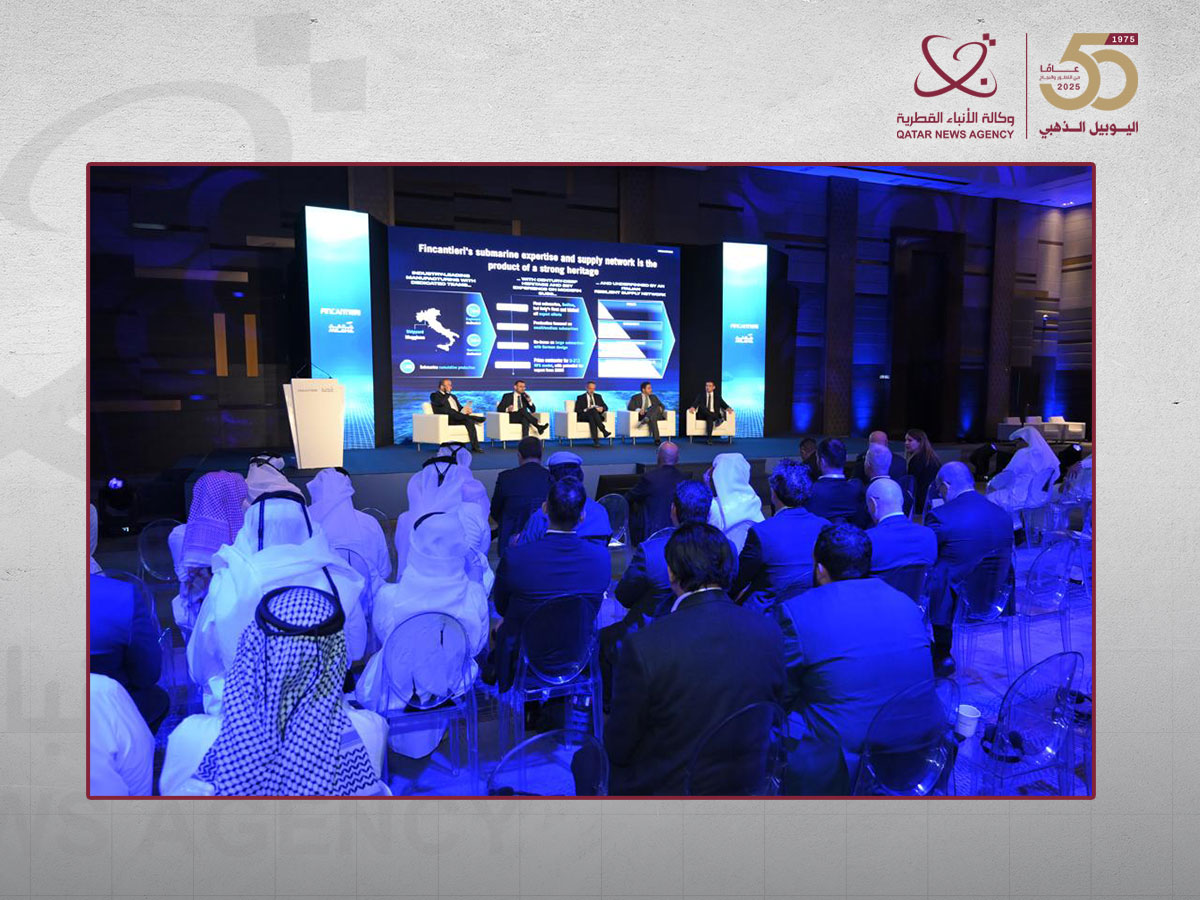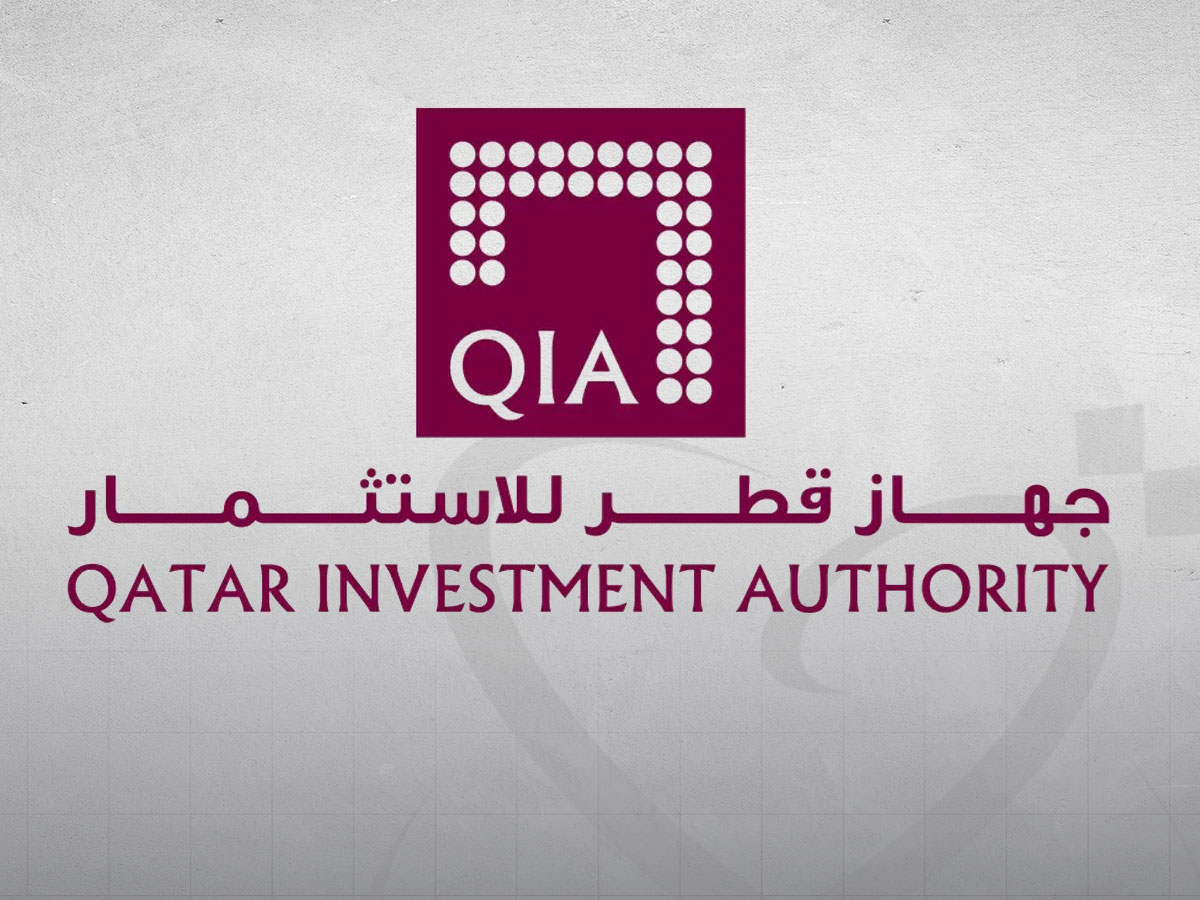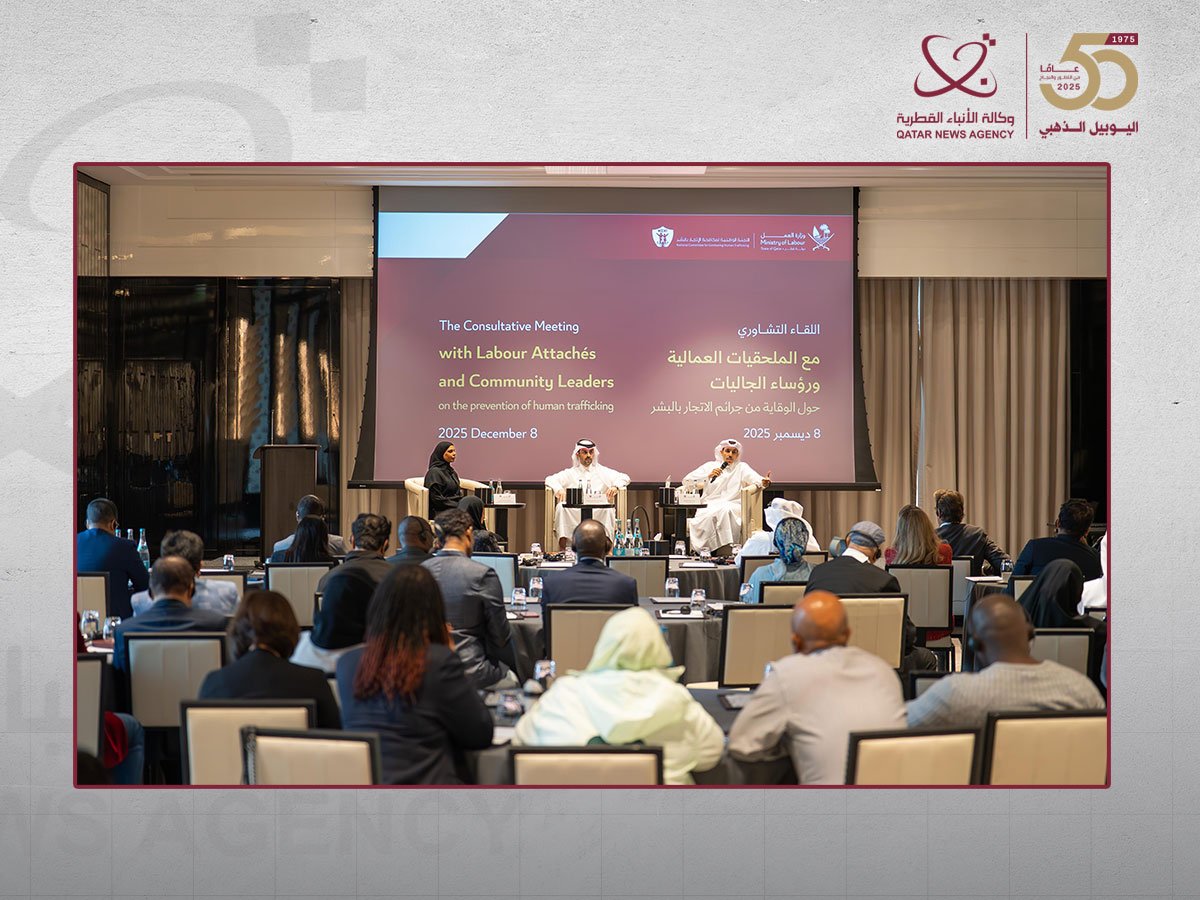Doha, March 20 (QNA) - Assistant Undersecretary for National Manpower Affairs in the Private Sector at the Ministry of Labour (MOL) Shaikha Abdulrahman Al Badi said that the recently announced sectoral councils are specialized councils comprising representatives from various key sectors, with the aim of strengthening and developing the national workforce in the State of Qatar.
In an interview with Qatar News Agency (QNA), Al Badi indicated that the sectoral councils, through their members, work to identify key gaps in the labor market and coordinate efforts among various stakeholders to meet the needs of the future labor market in the State of Qatar.
She noted that based on the Third National Development Strategy and the aspirations of Qatar National Vision 2030, nine sectoral councils will be established for all strategic sectors that contribute to the growth and diversification of the Qatari economy. These include the food and agriculture sector, education, healthcare, information technology and digital services, financial services, logistics services, tourism, manufacturing industries, construction, and real estate.
Al Badi emphasized that developing these strategic sectors is a key factor in achieving Qatar's economic ambitions, ensuring its flexibility, and maintaining its competitiveness at the regional and international levels.
In this context, she said that the growth of emerging sectors and the development of existing sectors will also provide new economic opportunities for the national workforce seeking to participate in the private sector by creating highly skilled and quality jobs that meet the needs of the future labor market.
Responding to a question concerning the contribution of these sectoral councils to achieving the goals of the National Strategy for an Effective and Highly Productive Workforce 2024–2030, Al Badi explained that the National Development Strategy focuses on creating a sustainable economic future led by citizens, residents, and the private sector in the State of Qatar, which summarizes the primary objective of the sectoral councils.
She noted that by developing the skills of the national workforce, creating new jobs for Qataris, and driving the transformation of local human capital, the goal is not only to achieve but to exceed the objectives of the National Development Strategy by 2030.
In this context, she added that through these councils, the MOL will design and implement programs and initiatives that support labor productivity growth by 2 percent annually, increase Qatari participation in the private sector to 20 percent by 2030, and contribute to the growth of general economic indicators across various sectors.
She stressed that the main objectives of the National Development Strategy remain firmly rooted in the vision and mission of the sectoral councils, with the support and participation of all stakeholders, and expressed her confidence in achieving significant progress.
Assistant Undersecretary for National Manpower Affairs in the Private Sector at the Ministry of Labor (MOL), Sheikha Abdulrahman Al Badi, affirmed that the sectoral councils play a crucial role in aligning the human capacity development system with emerging market needs in the State of Qatar. She emphasized that these councils work closely with key stakeholders to design educational and training programs that equip Qatari professionals with the necessary skills to thrive in the labor market. This, in turn, will create high-quality job opportunities in both the private and mixed sectors, enhancing the participation of the national workforce and boosting its contribution to the country's sustainable socio-economic development.
Al Badi underscored the pivotal role of sectoral councils in strengthening the partnership between MOL and the private sector by serving as a bridge between key entities, including legislative bodies, employers, and educational institutions, as well as regulatory authorities overseeing labor market development. This collaboration fosters constructive dialogue between policymakers and the private sector, ensuring that national strategies align with labor market demands and private sector requirements, thereby enhancing the competitiveness of the national workforce.
She further explained that through a comprehensive approach to human capital development and labor market advancement, these councils facilitate the design of more effective and efficient initiatives based on accurate data analysis and evidence-based decision-making. As a result, the councils will help bridge the gap between supply and demand for skilled labor, promote continuous education and training, and increase the productivity of the national workforce. Moreover, they will serve as a cornerstone in implementing the nationalization plan by contributing to policy development, employment strategies, and training programs aimed at integrating Qatari professionals into the labor market, particularly in the private sector.
The Assistant Undersecretary highlighted that these councils were established to address labor market challenges and develop innovative solutions in partnership with the private sector. To ensure their priorities are effectively set during the initial years, MOL engaged in extensive discussions with all relevant stakeholders, including the International Labor Organization. The councils' initial focus will be on data collection and strategic planning to identify current and future skills gaps, alongside developing and implementing initiatives that promote nationalization in the private sector and enhance the readiness of the national workforce.
Al Badi added that the sectoral councils will also provide an institutional platform for social dialogue among stakeholders, facilitating the integration of national efforts to achieve strategic objectives. She noted that insights gained from collaboration with the private sector will be leveraged and applied on a broader scale to ensure a lasting impact on the labor market.
Describing the initiative as a transformative step toward building a more sustainable and efficient labor system, Sheikha Al Badi expressed confidence that its positive impact would soon be reflected in the national economy. She further stated that a comprehensive guide detailing the councils' structure, governance, and key activities has been prepared and distributed to relevant government entities and potential private sector members. Additionally, promotional materials have been shared via MOL's social media platforms to raise awareness about the initiative.
As the official launch of the sectoral councils approaches in the second quarter of this year, further details will be made available to the public to enhance transparency and encourage stakeholder engagement. The councils will also publish an annual report outlining their achievements, labor market developments, and key recommendations. Furthermore, continuous updates on their progress and initiatives will be regularly shared on MOL's digital platforms, inviting public participation and engagement.
Regarding the commencement of the sectoral councils' operations, Sheikha Abdulrahman Al Badi stated that the Ministry has undertaken extensive preparatory efforts over the past months to ensure a smooth launch. She emphasized that the project represents a significant step toward strengthening cross-sectoral integration and confirmed that invitations are currently being extended to relevant members. Expressing optimism, she noted that the councils are expected to officially begin their work in the second quarter of 2025, with the support of all participating entities.
On the possibility of expanding the number of councils in the future, Sheikha Al Badi clarified that the design of the sectoral councils was carefully structured to align with Qatar National Vision 2030 and the Third National Development Strategy. Initially, nine sectoral councils have been proposed to oversee strategic economic activities that drive economic growth and diversification. However, she highlighted that the framework governing these councils remains flexible, allowing for future adjustments in response to evolving labor market and economic needs. This flexibility ensures that new councils can be established or existing ones restructured as necessary, in accordance with the directives of the country's leadership.
Addressing the coordination between the sectoral councils and the public sector, the Assistant Undersecretary emphasized that public sector engagement is a key component of the councils' operations. Representatives from relevant government entities will serve as active members, contributing their expertise to policy development. For instance, she noted that the Ministry of Health participates in the Sectoral Health Services Council, while government-owned enterprises and key public institutions are also engaged in shaping council initiatives.
Sheikha Al Badi stressed that while one of the councils' primary objectives is to promote national workforce employment in the private sector, their impact extends to both public and private sector employees by enhancing skills readiness and preparing workers for future labor market demands. The councils have a clear mandate to foster collaboration between the public and private sectors, ensuring that the national workforce is equipped to contribute effectively to Qatar's economic priorities and sustainable growth.
She elaborated that the sectoral councils adopt a holistic approach to workforce development, beginning with a comprehensive analysis of skills gaps in the labor market, followed by the design and implementation of targeted training programs. They also serve as a strategic platform for dialogue among stakeholders in the labor system, contributing to the career development of Qatari professionals from early education through retirement.
Sheikha Al Badi concluded by emphasizing that the sectoral councils will generate outputs tailored to the private sector while also addressing broader labor market needs, benefiting employers and job seekers alike. In the current phase, the councils will prioritize data collection and strategic planning to better understand existing and future workforce gaps. They will also play a key role in advancing the nationalization agenda by developing joint initiatives to tackle labor market challenges and enhance workforce integration. Furthermore, these councils will serve as a dynamic platform for social dialogue, fostering collaboration among stakeholders and driving forward national workforce development objectives. (QNA)
.png)
 8 months ago
274
8 months ago
274

